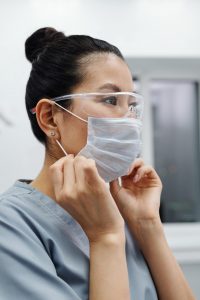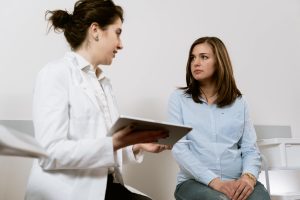Are you falling for me?
It never ceases to amaze me, how often we see trends in clinic, it could be particular sport-related injuries (snowboarding induced coccyx injuries in winter, netball knees in Spring), well at the moment we are seeing a lot of falls.
This led to a bad joke of “are you falling for me?”
I’ve got a working theory, it’s called COVID-19 induced falls.
What is a COVID-19 induced fall?

No, you don’t have to have the infection, in order to catch the falling bug.
Potential risk factors to catching a fall (we know it’s not infectious, but given the number of people we are seeing at Koru, it’s bordering on contagious).
- Stress-induced distraction
- Changes to routine
- Doing odd jobs you normally never get around to while spending more time at home
- Not replacing shoes from avoiding the shops (ordering online really isn’t the same)
- Increased alcohol consumption
- Tripping over all those pets you accumulated in lockdown
- Children constantly under your feet
- Wanting to be like Dan Andrews (we hope not)
Well, I’m just like many of you, I had a fall recently too and thought I’d tell you about it, so you can learn from my situation.
Prue’s fall
It all happened so fast, I was running late for a zoom call after treating my morning list of patients.
In the office, I have 2 chairs on wheels, a saddle stool with back support and a flat backless option.
Well, I had been using the saddle stool all morning and in a rush and without looking, just popped myself on the chair, only to slide off the back and land directly on my backside on the hard floor.
At that moment, the first thing that happened was that I felt my face flush and go a little red in the cheeks, in fact, I started sweating in an instant and looked around to see if anyone saw me.
Has this ever happened to you?
My ego felt a little more bruised than my backside and it turned out I hadn’t turned on my camera yet, so no one saw me.
Breathe in a big sigh of relief now!

I slowly peeled myself off the floor, brushed myself off and got myself into a comfortable position and pretended nothing had happened, and got on with the meeting, with a slight throbbing going down into the hip.
A couple of hours later, the pain started to set in and the limp became a little more obvious.
Realizing I hadn’t quite gotten away with it, after all, I rubbed in some arnica, did some light movement and stretches, popped on a heat pack, and managed to get myself in with one of our Osteos later in the day.
Not everyone is so lucky to be able to get in for a treatment quite as quickly, but the early intervention approach definitely got me moving easier, faster.
After a second treatment only a few days later, I felt almost 100%. But I knew a little more work needed to be done, not only to be out of pain but also to prevent this from happening again.
Is the pain emotional or physical (or both)?

One of the questions you may notice we ask if you come in for an appointment, isn’t so much “why did this happen?” but rather, “why is this happening now?” (or a version of it).
It never ceases to amaze me how often people think accidents happen out of the blue, or there is nothing you can do about it.
And there can be a lack of recognition of how you feel in the moment, (ie. being embarrassed, emotional or exhausted) has a bearing on how well you recover from injury.
Let me explain a little more, using my fall as an example.
I was running late, distracted and experiencing a low-grade level of stress, and a little more tired than I would like to be on a Friday. Then I unexpectedly fell over and it was completely preventable and entirely my own doing.
Then I pretended that I was completely fine and sucked it up in order to do the meeting, ignoring how I felt in the moment in order to do what had to be done.
Any of this sounding familiar?
Not only did the preceding events and feelings predispose me to having my small fall, it immediately impacted how I responded to the fall itself.
Then it stopped me from taking immediate action to take better care of myself at that moment.
My emotional state impacted my behaviour.
What we know about pain is that it is a subjective experience.
In fact, there is lots about pain that science doesn’t entirely understand at this point in time.
But one we know for sure is, how we feel emotionally impacts our physical pain levels.
If you’re not feeling good in yourself, you have a higher chance of experiencing more pain for longer periods of time and in turn, have a slower recovery.
Recognising how we feel, physically and emotionally is key for better recovery, decision making, injury prevention and generally feeling strong, stable, and secure.

Not only is it worth checking in with yourself, “how do I feel?”, but understanding there can be an emotional element to the pain and discomfort that we are experiencing, even when the symptoms are physical.
So don’t be put off if we sometimes ask you some slightly different questions that you may not expect at your next appointment.
At Koru, we are just trying to uncover what’s happening for you, so we can make a better and more complete plan on how to help you get the results you’re after and even more importantly, stop you from falling for us!

